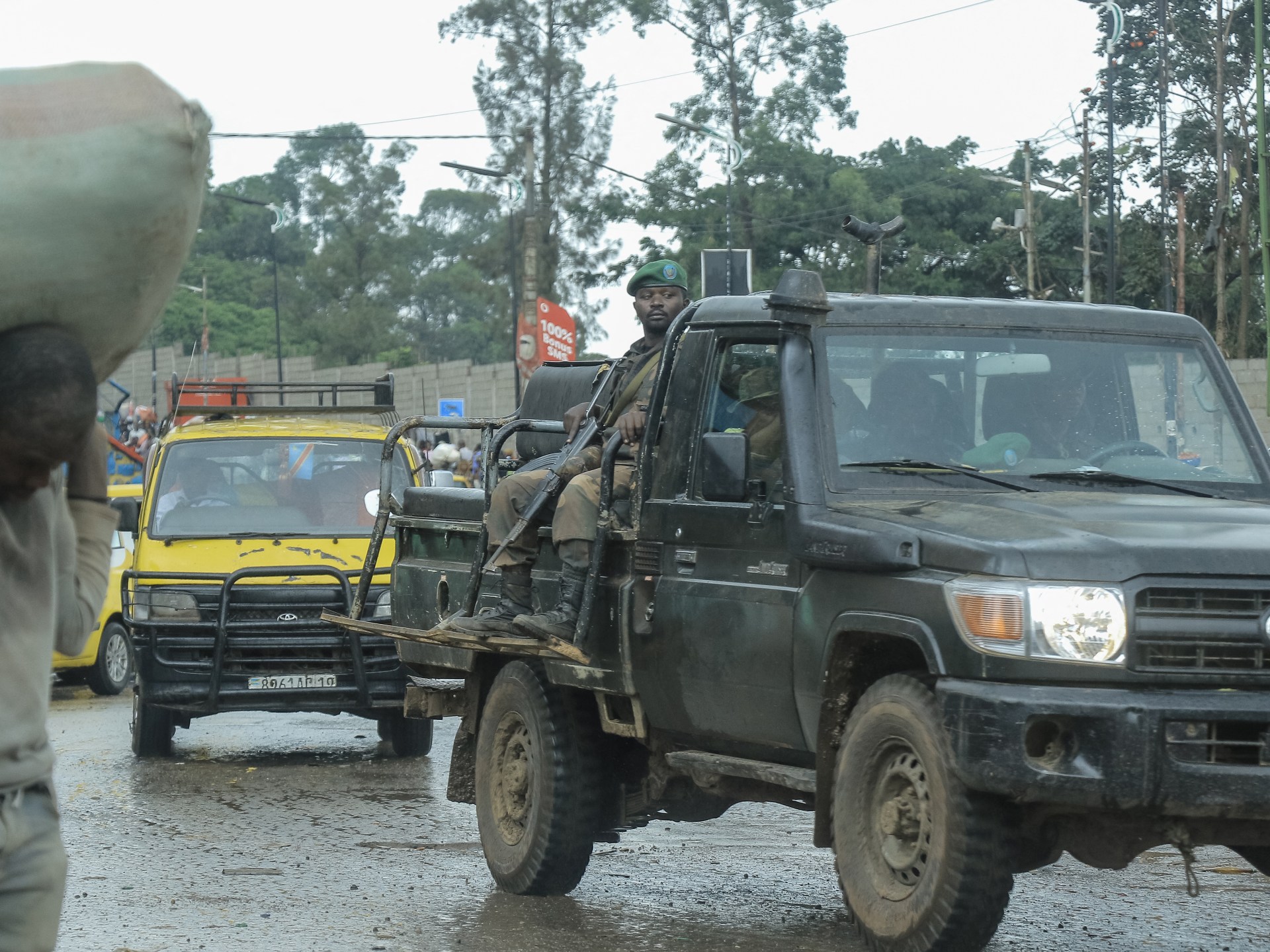Africa
‘Over the precipice’: UN chief sounds alarm on DR Congo fighting

A Regional Crisis Unfolds: The DRC and the M23 Rebellion
The situation in the Democratic Republic of the Congo (DRC) continues to deteriorate as Rwanda-backed M23 rebels gain control of strategic locations in the eastern part of the country. United Nations Secretary-General Antonio Guterres has sounded the alarm, emphasizing the urgent need to avoid regional escalation. Addressing the African Union (AU) summit in Addis Ababa, Ethiopia, Guterres called for the preservation of the DRC’s territorial integrity, warning that the ongoing violence in South Kivu province threatens to destabilize the entire region. His remarks came as M23 fighters claimed control of Kavumu airport, which serves the provincial capital of Bukavu, a key urban center in eastern DRC. Local media reported explosions and casualties in Bukavu, signaling an escalation in the conflict.
The M23 Advance and Regional Implications
The M23 rebellion, which has long been accused of receiving military support from Rwanda, has made significant strides in recent days. The group’s commanders, speaking to Al Jazeera, claimed they were in the process of “securing” Bukavu, suggesting a rapid expansion of their territorial control. The fall of Kavumu airport has further solidified their grip on South Kivu, complementing their earlier control of North Kivu. Both provinces are rich in mineral resources, including cobalt and coltan, which are critical for global tech industries. Additionally, the M23 now controls Lake Kivu, a vital waterway that facilitates supply transfers between the two provinces. This strategic advantage not only strengthens the rebels’ position but also raises concerns about the potential for further expansion.
International Alarm and Calls for Action
The international community has expressed growing unease over the deteriorating situation. The UN Security Council and regional bodies like the AU have been criticized for their slow response to the crisis. The AU, in particular, has faced accusations of taking a timid approach, with many observers calling for more decisive action to halt the M23’s advance. The European Union (EU) has joined the chorus of concern, with spokesperson Anouar el-Anouni stating that the bloc is “urgently” considering all options to address the crisis. The EU’s warning comes after the European Parliament unanimously approved a resolution urging the bloc to suspend a minerals deal with Rwanda and freeze direct budget support, military aid, and security assistance.
Rwanda’s Denials and Regional Tensions
Rwanda has consistently denied allegations of providing military support to the M23, despite a UN report indicating that Kigali maintains de facto control over the rebel group. Rwandan President Paul Kagame has accused hardline Hutu groups in the DRC of threatening his country’s security, framing his government’s involvement as a defensive measure. However, the DRC’s President, Félix Tshisekedi, has been vocal in his condemnation of Rwanda’s actions, accusing the country of harboring “expansionist ambitions.” Tshisekedi called on the international community to “blacklist” Rwanda during his remarks at the Munich Security Conference. The absence of both Kagame and Tshisekedi from the AU summit has further highlighted the deepening rifts in regional relations.
The AU’s Response and the Path Forward
Outgoing AU Chair Moussa Faki Mahamat emphasized the need for a ceasefire and announced a “general mobilisation” among African nations to end the violence. However, the AU’s efforts have been met with skepticism, as critics argue that the organization has failed to take bold action in the face of mounting instability. The situation in the DRC is not only a humanitarian crisis but also a test of the AU’s ability to resolve conflicts within its member states. As international pressure mounts, the AU will need to demonstrate a more robust commitment to addressing the root causes of the conflict and holding member states accountable for their actions.
The Human Cost and the Need for Dialogue
The escalating violence in the DRC hasalready caused significant human suffering, with reports of civilian casualties and mass displacement. The M23’s advance into Bukavu has raised fears of further bloodshed, particularly in urban areas where the potential for humanitarian crises is acute. The broader implications of the conflict extend beyond the DRC, threatening to draw in neighboring countries and destabilize the entire region. To prevent further escalation, international actors must prioritize diplomacy and dialogue, working to address the underlying issues driving the conflict. The UN, AU, and EU must also leverage their collective influence to ensure that all parties adhere to ceasefire agreements and respect the DRC’s territorial integrity. The stakes are high, but a coordinated and decisive response could help avert a regional catastrophe.











